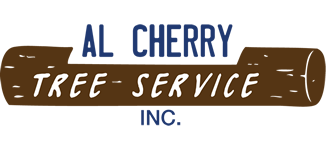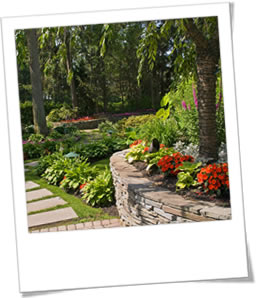Call us today! 215-672-6777 |
Leadership in Arboriculture |
 |
| Creating Healthy Landscape |
When a plant looks unhealthy or has been injured by an insect or a mite, often our first impulse is to apply a pesticide. But that solution might be a waste of time and money. Applying the wrong pesticide could destroy the pest's natural enemies, which sometimes take care of the problem without any intervention. A better approach is to manage the health and beauty of trees, shrubs, and flowers with minimal pesticide use. Some call this method integrated pest management (IPM); others call it plant health care (PHC). It involves looking at the total landscape; identifying the insect, mite, disease, or growing condition that appears to be causing a problem; and if any action needs to be taken, choosing from a variety of sound management strategies. This approach takes into account that only three to five percent of insect species are harmful and that most pests have natural enemies such as birds, toads, and beneficial insects to keep them in check. Penn State Cooperative Extension and well-informed horticulture professionals in the landscape and nursery business suggest using IPM practices. The five steps outlined in this fact sheet will help you take better care of your landscape plants and evaluate the services of professional landscape maintenance companies. FIVE STEPS TO TAKE…
It is important to understand the biology of many different plants. Additionally, knowing how pests and plants are affected by weather is important. Professionals who have this knowledge often are called IPM scouts or PHC technicians. Whether you develop this expertise for your location or hire a skilled professional to provide assistance, you soon will realize that the knowledge needed to monitor the health of a landscape is almost as sophisticated as that required of a physician. PEST MANAGEMENT METHODS
KEEPING RECORDS When monitoring plants in a landscape, you should keep records of each plant inspection. Observations should include the date, time, weather, major problems on each plant species, presence of beneficials, management decisions made, control techniques used, and an evaluation of control effectiveness. Whether you maintain your own landscape plants or hire a professional, you should ensure that good records are dept during the growing season. A landscape management service that does not keep good records is not providing an IPM program. Records are invaluable for management not only during the current season, but also for anticipating future problems. Records also may demonstrate the need to move or replace a plant that has persistent, high-maintenance problems. BENEFITS OF AN IPM PROGRAM
FOR MORE INFORMATION Penn State Cooperative Extension, Delaware Cooperative Extension, and the Southeast Pennsylvania IPM Research Group have been working together to provide information and educational materials on IPM and landscaping. This fact sheet, "Creating Healthy Landscapes--Introduction," is part of a series of educational fact sheets about understanding and using Integrated Pest Management. Other topics in the series include:
Copies are available from your local extension office. The Southeast Pennsylvania IPM Research Group is a collaboration of university and industry horticulture professionals who are inspecting landscapes across the region to monitor pest populations and share current IPM data. The group is partially supported by the Pennsylvania IPM Program (PAIPM). For more information about the research group, contact: Penn State Cooperative Extension, Montgomery County, 1015 Bridge Road, Suite H, Collegeville, PA 19426-1179; telephone: (610) 489-4315.
Located in Horsham, PA and practicing over 50 years in Montgomery and Bucks Counties and the Philadelphia area.
|
|||||
| Call us today at 215-672-6777 for more information on our Plant Health Care Services! |
About Al Cherry Tree ServiceSince 1957, Al Cherry Tree Service has provided complete tree care including arboricultural consulting to the greater Montgomery and Bucks County areas. We specialize in Tree Pruning, Tree Removal, Tree Spraying, Plant Health Care, Planting, Pruning & Landscaping and Arboricultural consulting services. |
 |
Services
|
Contact Us |
||||||||||
| Copyright 2015 Al Cherry Tree Service. | |||||||||||||
 INTRODUCTION
INTRODUCTION